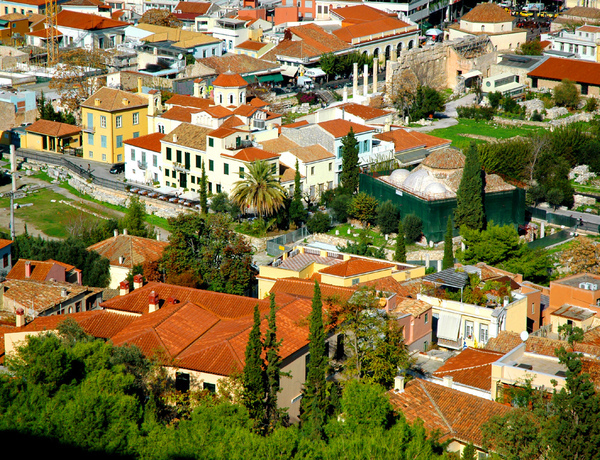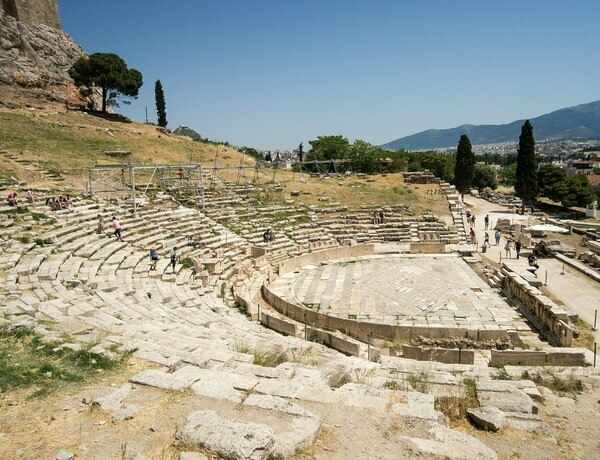
Posted by Filippos Fragkogiannis
The Areopagus Hill, also known as the Hill of Ares, is a prominent rock outcropping located northwest of the Acropolis in Athens, Greece. In ancient times, the hill was the site of the Areopagus, a council of elders who were responsible for hearing cases of homicide and other serious crimes.
The name “Areopagus” means “Hill of Ares,” and it was said to be the site where Ares, the god of war, was tried for the murder of Poseidon’s son. According to mythology, Ares was acquitted, and the hill became a place of judgment for the people of Athens.
Today, the Areopagus Hill is a popular destination for tourists and locals alike, who come to enjoy its stunning views of the city and the surrounding landscape. Visitors can climb the rocky steps to the top of the hill, where they can see the remains of the ancient court and enjoy panoramic views of Athens.
The Areopagus Hill is also associated with several important historical and cultural events. For example, according to the Bible, the apostle Paul preached on the hill during his visit to Athens in the 1st century AD. In addition, the hill has been the site of numerous political demonstrations and protests throughout modern Greek history.





